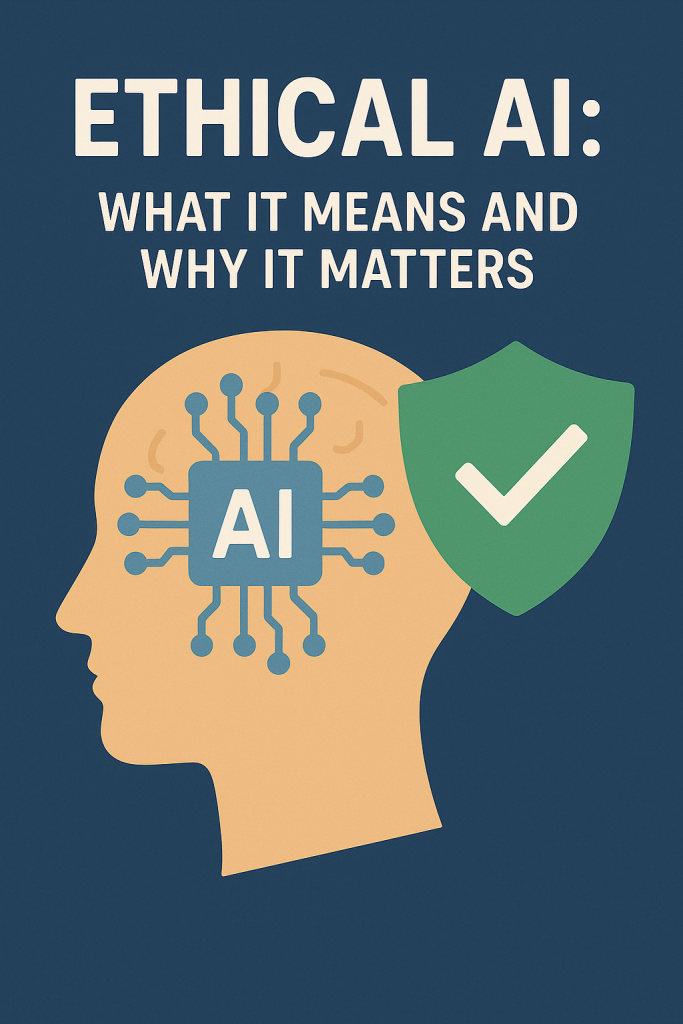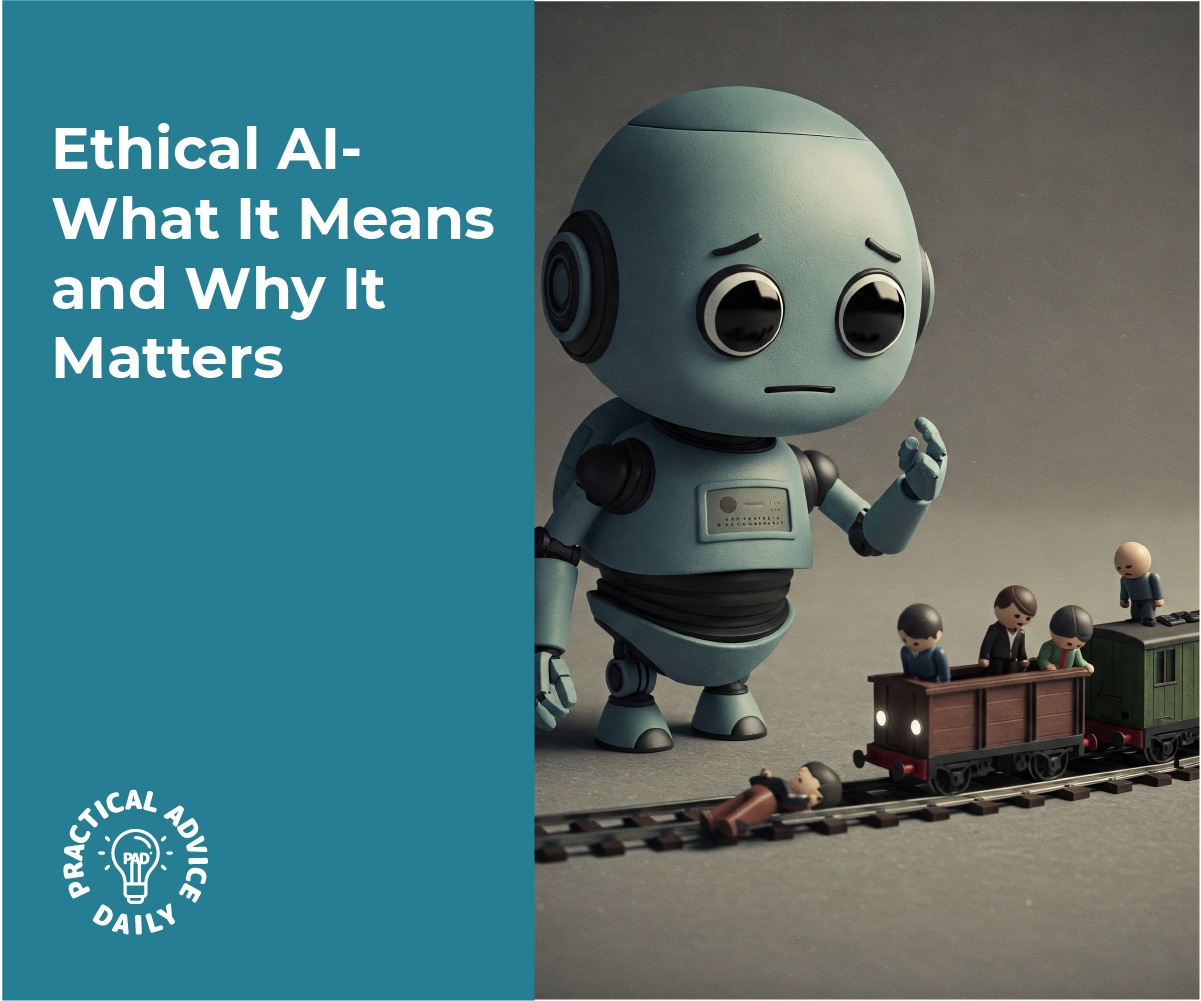You’ve probably heard about artificial intelligence—or AI for short. From voice assistants to smart home devices, AI is becoming part of our daily lives. But as these tools grow smarter, an important question comes up: Are they doing the right thing?
This article introduces the idea of ethical AI—what it means, why it’s needed, and how it helps protect people like you and me. Don’t worry—no technical background needed. We’ll explain everything in simple terms, step by step.
Key Takeaways
- Ethical AI means designing AI to be fair, honest, and responsible.
- Transparency helps us understand how AI systems make decisions.
- Fairness means treating everyone equally, without hidden bias.
- Accountability ensures someone is responsible if things go wrong.
- Ethical AI helps build trust—and protects people from harm.
What Is “Ethical AI,” Exactly?
Ethical AI is about making sure artificial intelligence is used the right way. Just like we expect people to follow rules and treat others fairly, AI systems should do the same.
But since AI doesn’t “think” or feel like we do, designers and developers have to build those values into the system ahead of time.
Let’s break it down into three simple ideas: transparency, fairness, and accountability.

1. Transparency: Seeing Behind the Curtain
When a computer or AI makes a decision—like recommending a job applicant or filtering online news—it should be clear how it reached that decision.
But many AI tools are like black boxes: they give answers without showing their work.
Transparency means:
- AI systems explain what they do and why.
- Users and reviewers can ask questions about the process.
- People aren’t left guessing about how choices are made.
Example:
If a hospital uses AI to suggest treatment plans, doctors and patients should understand why a certain plan was chosen—not just be told “the computer says so.”
2. Fairness: Treating People Equally
AI systems learn from data—and if that data contains unfair patterns, the AI might repeat them.
Fairness means:
- Avoiding hidden bias against people based on race, age, gender, or income.
- Testing systems to make sure everyone gets equal treatment.
- Using diverse, well-rounded data to train the AI.
Example:
If a loan approval system has mostly learned from one neighborhood or group, it might unfairly deny loans to others. Fair AI works to correct this.
3. Accountability: Who’s in Charge?
If an AI system makes a mistake—say, a self-driving car crashes or an AI incorrectly blocks someone from applying for a benefit—someone must take responsibility.
Accountability means:
- There are clear rules about who is responsible for AI decisions.
- People can report problems and get support if something goes wrong.
- Governments and companies put safety checks in place.
Example:
If a facial recognition system wrongly identifies someone, the company that built it should be ready to explain, fix the issue, and make sure it doesn’t happen again.
Why Ethical AI Matters to You
Even if you don’t work in tech, ethical AI touches your life in small but important ways:
- When applying for jobs or housing online
- When using smart health tools or insurance services
- When your personal information is stored or analyzed
Ethical design helps protect your rights, reduce errors, and build trust in the tools you use every day.
Final Thoughts
Artificial intelligence is a powerful tool—but like any tool, it needs careful guidance. Ethical AI means making sure that technology works for people, not against them.
You don’t need to be a programmer to care about this. Just knowing the basics—transparency, fairness, and accountability—helps you ask smart questions and understand how technology fits into your world.
Want to keep learning? Check out our beginner’s guides on AI safety, how AI learns from data, or why bias in tech matters more than ever.
